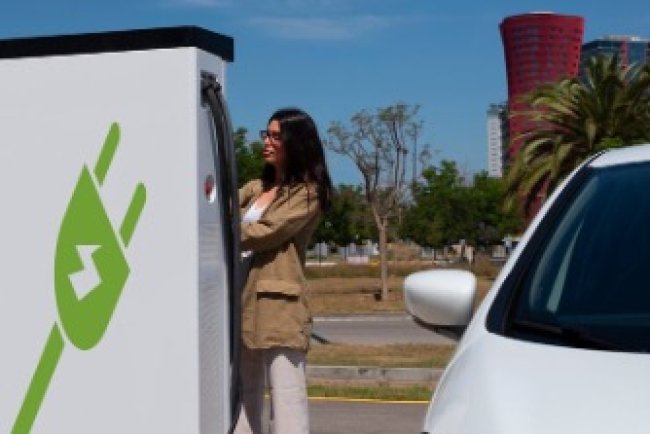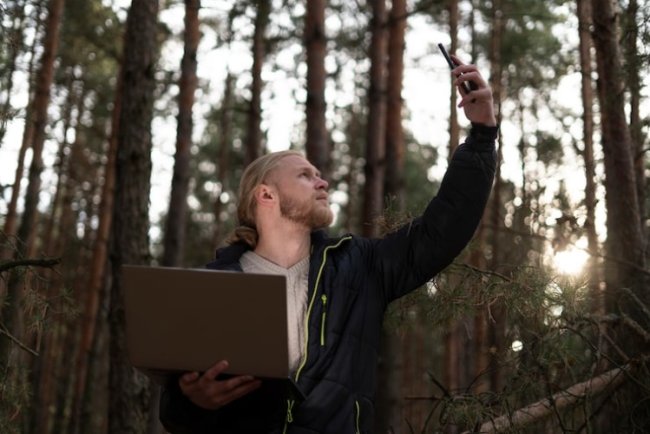Baker Hughes And Frontier Partner For Carbon Capture
Baker Hughes and Frontier partner to expand carbon capture and power generation infrastructure across the U.S.

Baker Hughes, in a very significant step to deploy large-scale carbon capture and storage (CCS), joined forces with Frontier Infrastructure to declare a strategic alliance that will seek to accelerate its CCS and power generation projects within the United States. This would help improve low-carbon energy infrastructure in a country where rising industrial demand accompanies growing decarbonization efforts.
At the center of this initiative is Frontier’s Sweetwater Carbon Storage Hub (SCS Hub) in Wyoming, which spans 100,000 acres and is designed to serve as a major open-access CO₂ storage site for industrial emitters and ethanol producers. This ambitious project is positioned to become one of the largest carbon sequestration assets in the country, offering a scalable solution for industries looking to reduce their carbon footprint. The hub will facilitate emissions reductions throughout the Midwest through the use of a CO₂-by-rail approach, which will provide for efficient carbon dioxide transport and storage.
Three Class VI permits have already been secured by Frontier, which are required for CO₂ injection and long-term sequestration in subsurface geology. The company anticipates the first carbon injection to take place by the end of 2025, marking a crucial milestone in the U.S.’s path toward large-scale carbon management. With regulatory approvals in place, the project is poised to play a significant role in helping industrial facilities comply with tightening emissions standards while maintaining operational efficiency.
Baker Hughes, a global leader in energy technology, will contribute essential CCS and power generation technologies to the project. This includes expertise in well design, CO₂ compression, and long-term monitoring to ensure safe and efficient carbon storage. A key component of its contribution will be the integration of NovaLT™ gas turbines, which are designed to provide flexible and efficient power generation. These new turbines will be critical in helping fuel Frontier's expanding energy infrastructure, especially as the company grows its gas-fired generating capacity to keep pace with rising electricity needs.
The energy expansion part of this agreement is especially noteworthy as data centers and industrial facilities nationwide are undergoing unprecedented growth. To cater to this growing demand, Frontier is building 256 MW of gas-fired electricity, which will power Wyoming, the wider Mountain West, and Texas. This growth in energy capacity will be a game-changer for businesses that need low-carbon and reliable energy solutions. Baker Hughes' cutting-edge technology will ensure that these power plants become efficient while having lower emissions than traditional fossil-fuel-based electricity generation.
The partnership between Baker Hughes and Frontier comes at a time when energy security and sustainability are at the forefront of national discussions. With industries under increasing pressure to decarbonize, large-scale CCS projects like the Sweetwater Carbon Storage Hub provide a viable pathway for significant emissions reductions. Unlike smaller, site-specific carbon capture initiatives, open-access hubs like SCS allow multiple industrial players to store CO₂ in a centralized location, making the process more cost-effective and scalable.
Robby Rockey, Frontier Infrastructure's president and co-CEO, highlighted the significance of this expansion, saying, "With energy demand increasing throughout the nation, industrial customers require scalable, low-carbon solutions, and Frontier's expanded infrastructure will provide just that." His words highlight the increasing demand for projects that can reconcile energy reliability with sustainability so that businesses can keep running while fulfilling environmental goals.
The Sweetwater Carbon Storage Hub's placement in Wyoming also makes it poised to serve a wide variety of industries, such as manufacturing, ethanol production, and power generation. Through a CO₂-by-rail methodology, the project can effectively ship captured carbon from facilities throughout the Midwest, overcoming the logistical challenges that typically limit CCS adoption. This transportation model improves the project's scalability, making it a compelling option for industrial emitters seeking to better control their emissions.
Apart from its direct effect on emissions reduction, the partnership between Frontier and Baker Hughes points to the more general role of CCS in the energy transition. With governments and companies looking to reach net-zero, technologies that facilitate permanent sequestration of CO₂ will increasingly be under the spotlight. The combination of Baker Hughes' monitoring and compression technologies guarantees trapped carbon is kept safely sealed in place, one of the main concerns with underground storage.
Aside from carbon sequestration, power infrastructure expansion is also a main component of this alliance. With the growing electrification of the industry and the explosive development of data centers, the need for stable and efficient sources of energy keeps on surging. Frontier's 256 MW gas-fired power project will be able to bridge this demand gap, supplying a stable energy source while supporting the increasing penetration of renewables. Baker Hughes' NovaLT™ turbines will further this ability by providing efficient, lower-emission power generation, complementing wider decarbonization objectives.
This alliance is also consistent with a wider trend in the energy industry, where large corporations are coming together to drive carbon management solutions more quickly. To that end, CO280 and Aker Carbon Capture have allied with Microsoft to further carbon removal across North America. These collaborations demonstrate an increased awareness of the necessity for widespread, cross-sectoral efforts to spur significant movement towards greenhouse gas emission reductions.
As the world moves in a low-carbon direction, projects like the Sweetwater Carbon Storage Hub will play an increasingly important role in the energy landscape. Combining advanced technology with large-scale infrastructure development, Baker Hughes and Frontier Infrastructure are establishing a new standard in terms of how CCS and power generation can come together to meet economics and environment objectives. With its initial carbon injection planned for late 2025, the SCS Hub is a significant milestone in the deployment of commercial carbon capture technology, proving that industrial development and sustainable energy growth can coexist.
What's Your Reaction?

















